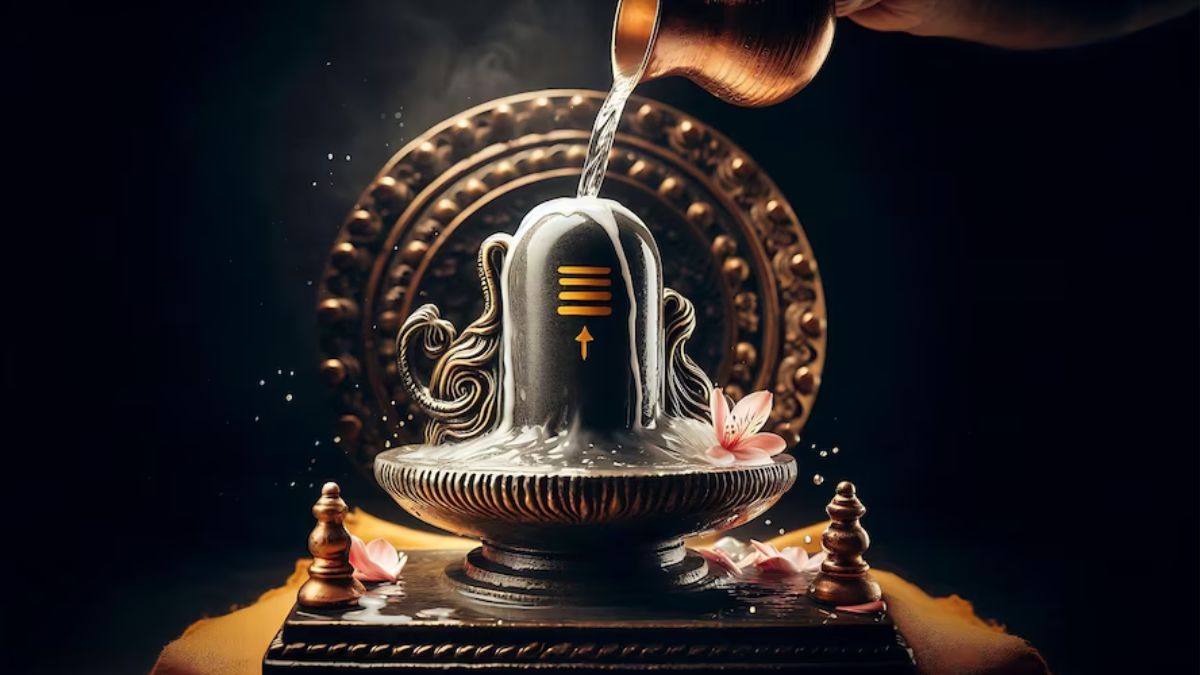- By Kashish Rai
- Thu, 10 Jul 2025 01:12 PM (IST)
- Source:JND
Sawan 2025: Worshipping Lord Shiva during the sacred month of Sawan holds immense spiritual significance, especially for those seeking peace, prosperity and divine grace. This year, Sawan begins on 11th July 2025, and ends on 9th August 2025. Devotees, especially women, offer water, milk and Belpatra with devotion, believing it pleases Bholenath. However, certain items must never be offered, as they are considered inauspicious in Shiva worship.
Below is the list of 6 items that must not be offered to Bholenath even by mistake:
Sawan 2025: Do Not Offer THESE 6 Items To Lord Shiva Even By Mistake
1. Turmeric (Haldi)
Turmeric is widely used in Hindu rituals but must never be offered to Lord Shiva. It is associated with fertility and feminine energy, aligning more with deities like Goddess Lakshmi and Parvati. Since Lord Shiva is a renunciate and detached from worldly pleasures, offering turmeric is considered inappropriate and symbolically contradictory to his ascetic nature.
2. Tulsi Leaves
Though sacred and dear to Lord Vishnu, Tulsi leaves are never offered to Lord Shiva. According to mythology, Tulsi was once cursed by Shiva after an emotional conflict involving her husband, the demon Jalandhar. As a result, offering Tulsi to Shiva is believed to invite disharmony. Devotees are advised to respect this symbolic boundary between the two powerful deities.
3. Ketaki Flower
Ketaki, also known as screw pine, is strictly forbidden in Shiva worship. Legend says the flower gave false testimony in favour of Lord Brahma during a divine dispute with Shiva. Angered by the lie, Lord Shiva cursed the Ketaki flower, forbidding its use in his rituals. Even today, devotees avoid offering it to maintain the sanctity and truthfulness of their worship.
ALSO READ: Women Must Follow THESE 7 Essential Rules While Worshipping Lord Shiva | Sawan 2025

Sawan is sacred for Shiva worship, but some offerings remain strictly forbidden. (Image Source: Freepik)
4. Coconut Water
While coconuts are often broken as a sign of surrender, coconut water should not be poured on the Shiva Linga. Once offered, coconut water is considered used and impure in this context. Since Lord Shiva’s worship emphasises purity and simplicity, it is believed that coconut water disrupts this spiritual balance and is therefore best avoided during abhishekam rituals.
5. Champa (Plumeria) Flowers
Despite their sweet fragrance, Champa flowers are not offered to Lord Shiva. According to tradition, these flowers attract negativity and are believed to be linked with energies that do not align with Shiva’s pure and sattvic vibrations. Devotees prefer offerings that symbolise simplicity, purity and detachment, making Champa flowers unsuitable in the context of Shiva worship.
ALSO READ: Kanwar Yatra 2025: Why Shiva Devotees Go On This Sacred Pilgrimage In Sawan?
6. Shankh (Conch Shell) Water
Water from a conch shell, though auspicious in other rituals, is not used for Lord Shiva. The reason lies in symbolism. Shiva once destroyed a demon who took the form of a conch. Since then, offering conch water is seen as disrespectful. Instead, devotees use plain water, milk or Ganga jal to maintain the spiritual purity of the offering.
(Disclaimer: This content includes advice providing generic information only. It is in no way a substitute for qualified spiritual or astrological opinion. Always consult a specialist for more information before adopting any measures.)

-1752133019769.webp)